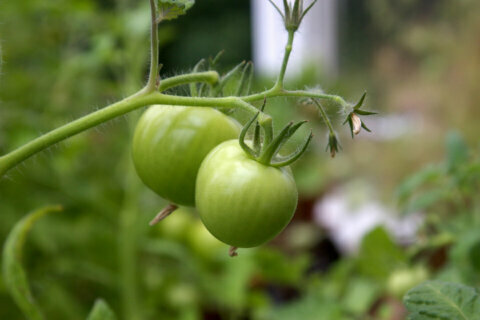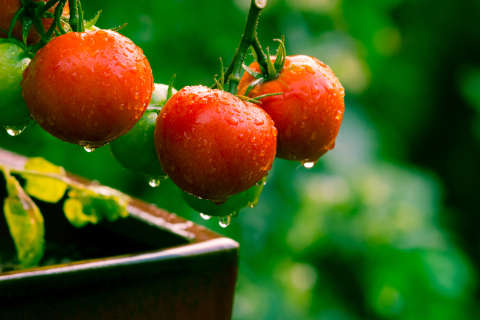Do you have your garlic in the ground?
The time to plant garlic is between when the kids go back to school and early October; and the growing could not be easier!
Get good quality planting garlic and gently break the heads open and separate out the individual cloves inside. Plant each clove pointy end up — about 6 inches down and 6 to 12 inches apart. (The more room you give them, the bigger the bulbs can grow.)
Garlic needs excellent drainage to avoid neck rot, so plant the cloves in your best-draining bed. Mixing a batch of perlite — a popped volcanic mineral that looks like little plastic foam balls — into the soil first would be a great idea. You can find perlite at any independent garden center.
Get double duty from your garden beds
I love planting garlic at this time of year. You clear out one of your beds that’s done producing tomatoes and plant cloves of garlic in their place, keeping that bed producing over the winter.
You’ll find the very best planting garlic at a local farmers market. Garlic that was locally grown produces the best cloves for planting. Just be sure it’s what’s called a “producer only” farmers market, meaning all the wares are local.
Otherwise, go online and order planting garlic from a reputable source, such as the Seed Savers Exchange, Gurney’s, Burpee or Park Seed. Do not use standard supermarket garlic; it’s not the right type for this region and was likely treated with sprouting inhibitors.
Are your necks hard or soft?
Plant individual cloves of garlic in your best draining soil now and each clove will produce a nice, big head full of cloves early next July. A great return on investment!
But which type of garlic to plant?
Hardneck varieties love cold winters and have vastly superior flavor and those beautiful red and purple wrappers. But hardnecks don’t store for long and will begin to sprout in September, so you need to use them fast. (I slice and dry my extras and use them to make the world’s finest garlic powder!)
Softneck garlics — also known as white California garlic — are much tamer in flavor and color, but store without sprouting for much longer periods of time. And thanks to those soft necks, they can be easily braided. Softnecks are fine but be sure to also grow some hardneck varieties for the flavor.
Milorganite: Threat or menace?
Phil in Annapolis writes: “Did I hear you say last week that Milorganite is illegal for use on lawns in Maryland and Virginia? If the answer is yes, how can it be sold if it is banned? I see it everywhere!”
Good question, Phil.
The branded product Milorganite — dried human waste from the sewers of Milwaukee — contains phosphorus. Lawn fertilizers containing phosphorus are specifically forbidden by lawn care laws enacted a few years ago in both Maryland and Virginia. Those laws were part of an effort to try and help clean up the Chesapeake Bay, which is greatly damaged by phosphorus in fertilizers.
It is clearly against the law to use it. But is it against the law to sell it? I’ll be looking into how these laws are being enforced and report back next week.
Honey do!
We are rapidly running out of time to establish a new lawn by seed and to use seed to fill in bare spots. Don’t delay!
Outlying areas have already seen some pretty cold nights, so check your local 10-day forecast and pick all your green tomatoes the next time nights are predicted to be in the 40s. Allow them to ripen at room temperature. (Or make fried green tomatoes!)
Start preparing house plants to come back inside by blasting them with sharp steams of water to blow away any hitchhikers. No chemicals needed. Laser-sharp sprays of water are the best pesticide.
Same with pepper plants, which can live for many years if brought inside in time. Pot them up and start those sharp streams of water! I’ll provide more details on making pepper plants perennial next week …
Mike McGrath was editor-in-chief of ORGANIC GARDENING magazine from 1990 through 1997. He has been the host of the nationally syndicated public radio show “You Bet Your Garden” since 1998 and WTOP Garden Editor since 1999. Send him your garden or pest control questions at MikeMcG@PTD.net.







